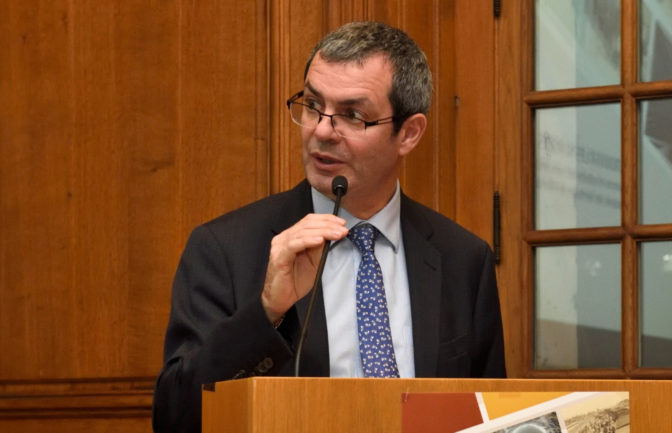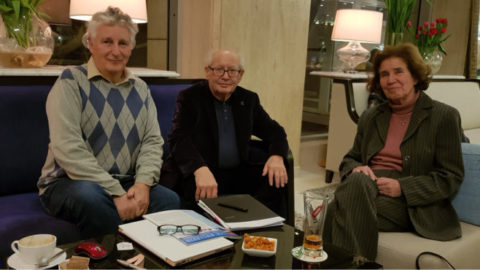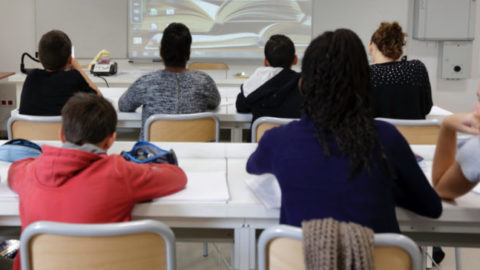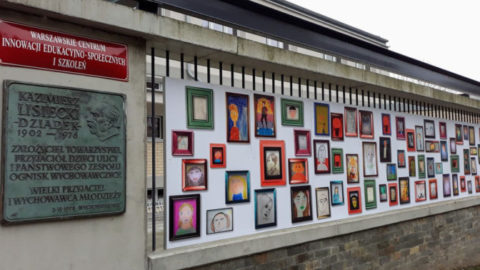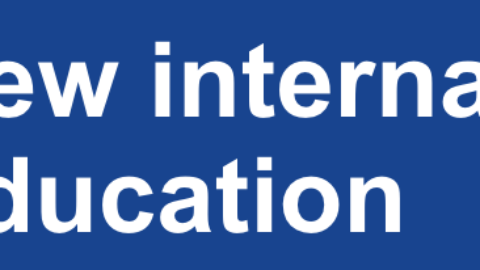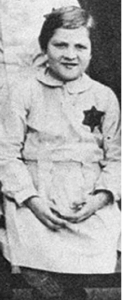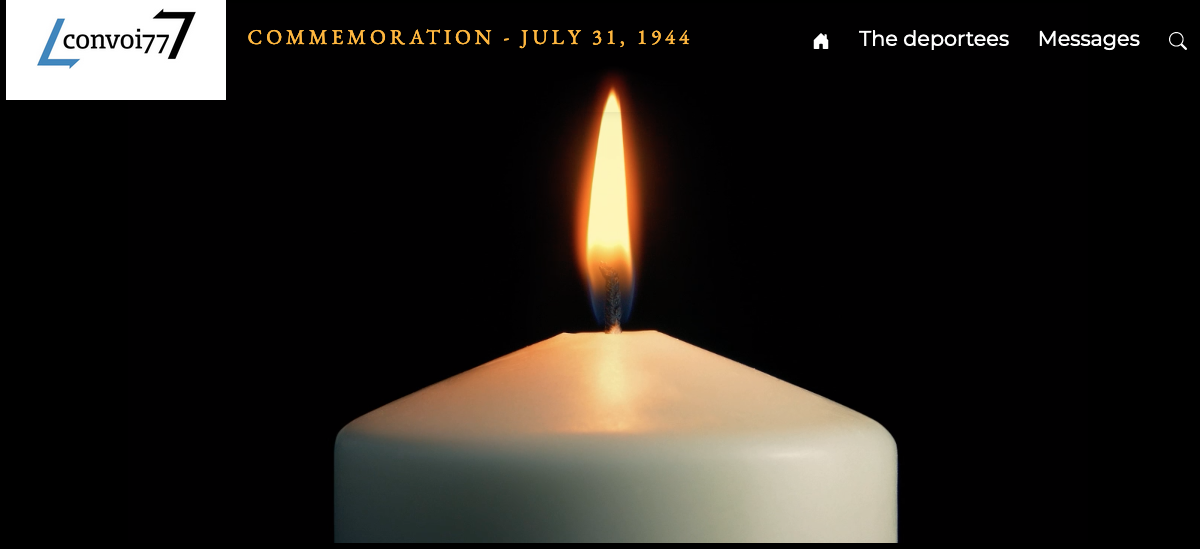An interview with Philippe Allouche, Director General of the Fondation pour la Mémoire de la Shoah (Foundation for the Memory of the Shoah):
· The Foundation for the Memory of the Shoah has been supporting the Convoy 77 project right from the start. What do you gain from it?
With Convoy 77, our involvement is as a sponsor. I have a particular fondness for this project because we watched its inception. It is a very worthwhile and original educational project, international in scope, which respects human beings and their lives.
Convoy 77 reminds us that the deportees were ordinary people who had a life, a home, perhaps a job. Behind each victim there was a woman, a man, or an elderly person. It is important to include all these lives before they died, before they were murdered.
Ideally, each convoy [on which Jews were deported] should have its own association. This would be of huge benefit to our collective memory and to the recognition of the human tragedies experienced by all these victims.
· Do you work only on the genocide of the Jews during the Second World War or also on other genocides? For example, there are several references to the genocide of the Tutsis in Rwanda on the Foundation’s website.
At the Foundation for the Remembrance of the Shoah, the Holocaust is not our sole focus. We also work on other universally recognized genocides, such as indeed that of the Tutsis in Rwanda. Most of the young researchers working on this aspect of history have been or are supported by the Foundation for the Remembrance of the Shoah.
We also work on the Armenian genocide, the first genocide of the 20th century, but that is more complicated because it happened over a century ago and we have fewer testimonials.
I think it’s important to study what happened to other minorities that were almost completely decimated.
· According to a study mentioned on your site, in which the Foundation for the Remembrance of the Shoah participated, 48% of the 249 Holocaust survivors interviewed felt that the pandemic had reawakened vulnerabilities that resulted from their experiences during the Second World War. In what way does living in the context of a pandemic contribute to the recollection of trauma?
It is important to remember that a large proportion of the survivors alive today were hidden children during the Second World War. Thus, when they are told to “stay at home”, they may take that to mean “we have to hide”. Being in lockdown reawakens their previous anxiety.
To address this situation, during the lockdowns, we worked with organizations that supported survivors by listening, being there for them or calling them, for example.
It was also important for us to help the Jewish and memorial associations through the Covid emergency. The whole associational network has been greatly affected by the crisis and such organizations are in a worse financial situation than they were eighteen months ago.
· One of the Foundation’s roles is to promote intercultural dialogue. How do you do this?
We have supported associations that do this, such as Les racines de demain (Roots of tomorrow), in Lyon, or the CoExist program, supported by the UEJF (Jewish students’ union), which goes into schools to help break down prejudices about Jews and Arabs.
The Amitié judéo-musulmane de France (Jewish-Muslim fellowship of France) also promotes interreligious dialogue: it goes to the suburbs to talk openly about subjects that can be a source of conflict.
There is also the Aladdin project, which seeks to make people in the Arab-Muslim world aware of the Holocaust and, beyond the Holocaust, of Jewish life in general. It is vital to talk about the history of coexistence between Jews and Muslims in such countries, where the Jewish community is now smaller and less visible.


 Français
Français Polski
Polski